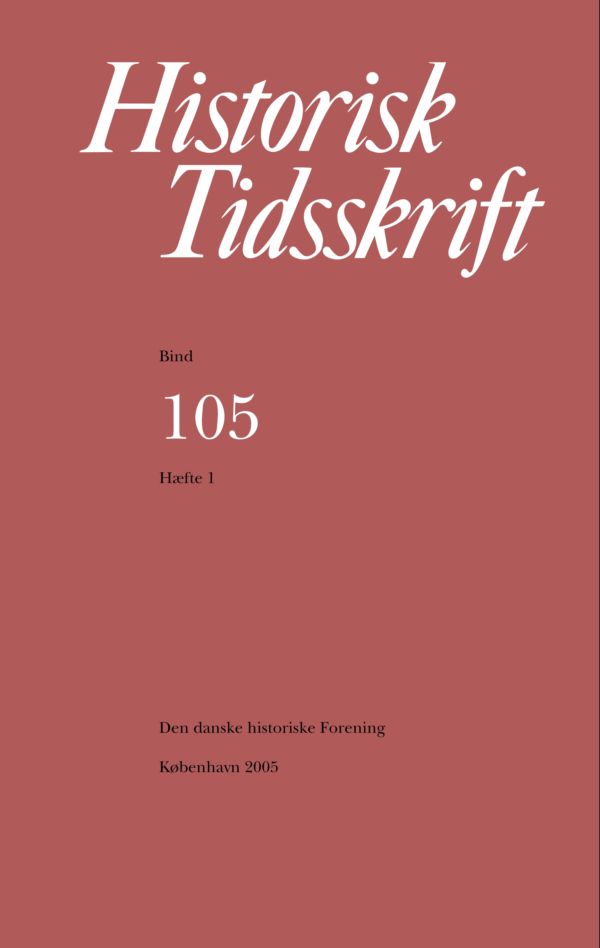Hestesport og magt. En analyse af athenske hestesportsvindere i arkaisk og klassisk tid
Resumé
Equestrian Sports and Power: An Analysis of the Athenian Equestrian Sports Winners in the Archaic and Classical PeriodsThe purpose of the present article is to examine how and why extremely wealthy Athenian families threw their fortunes into equestrian sports, an arena where chances of success were small and the risk of loss so great that, according to modern scholars, it could lead to ruin. Our thesis is that the winner of the Athenian equestrian games - having the proper social background and using massive wealth - was able to acquire a highly coveted resource in the political struggles for power during both the Archaic and Classical periods in Athens. As the basis of our study we have collected every available source relating to Athenian victories in equestrian sports in the Pan-Hellenic games in Archaic and Classical times and then combined the relevant information with data derived from John K. Davies' prosopographical study: Athenian Propertied Families (1971) on the wealth of rich Athenians during these periods. Despite incomplete and often fragmentary sources ranging from potsherds over monument inscriptions to written documents, the method has successfully produced a coherent socio-economic profile of the Athenian equestrian victor. We have limited our investigation to the Athenian winners in the Pan-Hellenic games, because in a fundamentally competitive society such as Athens victory was everything. There was no room, or for that matter no laurels, for second place. The study's theoretical framework is inspired by the French sociologist Pierre Bourdieu's concepts of habitus, practice and power. Bourdieu's analytical concepts are particularly useful, because they provide access to a deeper and more refined understanding of the Athenian victor's pattern of behaviour and choice of career while also bringing to light the deep-seated tie found in Antiquity between power and honour. A clear grasp of this latter aspect is a precondition for understanding how Athenian democracy worked. The formulation of the problem and thesis of the study lead to the treatment of five main points: 1) The social status and military function of the Athenian participant in equestrian sports; 2) Economic requisites for participation; 3) Finance models of equestrian sports; 4) Norms regarding honour and the use of wealth in the city state; 5) The victor's rewards and possible motives for participating in Pan-Hellenic equestrian sports. Despite the limitations of the source material, the article concludes that the study seems to provide very substantial support for its thesis. It demonstrates that Athenian winners in equestrian sports were recruited from very few families sharing almost identical socio-economic profiles. It was likewise a common trait that they owned huge tracts of land, and it can be documented that they had a tradition of participating and winning in the Pan-Hellenic equestrian games. They also had access to an extensive Pan-Hellenic network of guestfriendships, and they possessed considerable political influence. Moreover, there is every indication that victory in equestrian sports during the Classical period represented a significant resource of honour and power on a level with magnificent liturgies and public investments, which were part of the rich Athenian's pursuit of honour and political power, even though democracy in Classical times altered the conditions for politically exploiting victory in equestrian sports. Finally, the study also provides grounds for emphasizing the importance of the games for foreign relations. Victory in equestrian sports allowed the wealthy Athenian to play host and friend to guests of higher social and political status from other city states, thus endowing him with a power resource of great value - and not only for himself personally, but also for Athens, which in times of war had need of diplomatic support far beyond Attica. Translated by Michael WolfeDownloads
Publiceret
Citation/Eksport
Nummer
Sektion
Licens
Ophavsret til bidrag i Historisk Tidsskrift tilhører forfatterne og Den danske historiske Forening som udgiver af Historisk Tidsskrift. For illustrationer gælder den ophavsret, som står anført i billedteksten. Ophavsretslovens almindelige bestemmelser gælder, hvilket vil sige, at ophavsretten gælder i 70 år efter forfatterens død. Bidrag i Historisk Tidsskrift må derfor, med forbehold for en ”moving wall” på tre år, frit downloades, læses, gemmes, anvendes og citeres (med kildeangivelse) i privat og videnskabelig sammenhæng, men de må ikke helt eller delvis genudgives af tredjepart, heller ikke i redigeret form, uden tilladelse fra forfatterne og Den danske historiske Forening. Henvendelse skal i så fald rettes til Historisk Tidsskrifts redaktion på histtid@hum.ku.dk.





